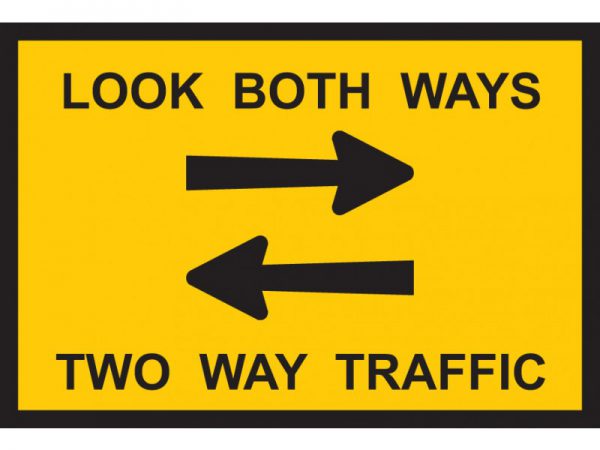Both = entrambi, tutti e due, ambo, ambedue, sia…che
Both è una di quelle parole che spesso vengono trascurate durante l’apprendimento della lingua inglese ma che tornano sempre utili. Vale la pena, dunque, soffermarsi un attimo a vedere come viene usata e quali sono le sue possibilità. Come si vede dai vari significati in italiano, both si riferisce a due persone, animali o cose considerati insieme. Both può essere usato sia con sostantivi che con pronomi.
Both + Sostantivo
Both si può abbinare direttamente ad un qualsiasi sostantivo al plurale.
- I have read both versions and I prefer the first one.
- Ho letto entrambe le versioni e preferisco la prima.
- Both girls deserve a prize in my view.
- Entrambe le ragazze meritano un premio secondo me.
- We can try both ideas and see which works best.
- Possiamo provare tutte e due le idee e vedere quale funziona meglio.
Both + articolo determinativo + sostantivo
Quando both si abbina al sostantivo con l’articolo determinativo, si può usare sia both che both of.
- Bob took both the dogs to the vet for a check-up.
- Bob took both of the dogs to the vet for a check-up
- Bob portò tutti e due i cani dal veterinario per una visita di controllo.
- Both the trains go to Exeter but one is more expensive.
- Both of the trains go to Exeter but one is mor expensive.
- Entrambi i treni vanno ad Exeter ma uno è più costoso.
- Jane lost both the matches last Saturday.
- Jane lost both of the matches last Saturday.
- Jane ha perso entrambe le partite sabato scorso.
Both + aggettico possessivo + sostantivo
Anche quando both si abbina al sostantivo con un aggettivo possessivo, si può usare sia both che both of.
- Tom sold both his cars on the same day.
- Tom sold both of his cars on the same day.
- Tom ha venduto entrambe le sue macchine lo stesso giorno.
- Both their children have got bad coughs at the moment.
- Both of their children have got bad coughs at the moment.
- Entrambi i loro figli hanno una brutta tosse al momento.
- I can bring both my guitars to the party if you want.
- I can bring both of my guitars to the party if you want.
- Posso portare tutte e due le mie chitarre alla festa se vuoi.
Both + genitivo sassone + sostantivo
Anche quando both si abbina al sostantivo con un genitivo sassone, si può usare sia both che both of.
- We borrowed both Tom’s bicycles for the weekend.
- We borrowed both of Tom’s bicycles for the weekend.
- Abbiamo preso in prestito tutte e due le biciclette di Tom per il fine settimana.
- Both Jane’s parents are teachers.
- Both of Jane’s parents are teachers.
- Entrambi i genitori di Jane sono insegnanti.
- Both the doctor’s assistants were busy.
- Both of the doctor’s assistants were busy.
- Entrambi gli assistenti del dottore erano impegnati.
Both + pronome (we/us, you/you, they/them)
Questa combinazione può fungere sia come soggetto di un periodo che come complemento. In ogni caso ci sono sempre due possibili costruzioni:
- Pronome + both
- Both of + pronome
Quando both funge da soggetto del periodo, la prima forma usa il pronome soggetto (we, you, they) e la seconda forma usa il pronome complemento (us, you, them):
- We both work in the same school.
- Both of us work in the same school.
- Lavoriamo tutti e due nella stessa scuola.
- You both look really tired.
- Both of you look really tired.
- Tutti e due sembrate stanchissimi.
- They both made the same mistake.
- Both of them made the same mistake.
- Entrambi hanno fatto lo stesso errore.
Quando both funge da complemento del periodo, entrambi le forme usano il pronome complemento (us, you, them):
- They gave us both the same test.
- They gave both of us the same test.
- Hanno dato a noi due la stessa prova.
- I’ve got a big surprise for you both.
- I’ve got a big surprise for both of you.
- Ho una grande sorpresa per entrambi voi due.
- We looked very carefully at them both.
- We looked very carefully at both of them.
- Abbiamo guardato entrambi con molta attenzione.
Both come pronome
Si può usare both anche come pronome:
- I’ve tried using butter and olive oil. Both work equally well.
- Ho provato ad usare sia burro che olio d’oliva. Entrambi funzionano ugualmente bene.
- “Do you want apple pie or ice-cream?” “I’d like both, please.”
- Vuoi torta di mele o gelato?” “Vorrei entrambi, per favore.”
- Can you fix the computer and the projector, please? I need both this afternoon.
- Puoi sistemare sia il computer che il proiettore, per favore. Mi servono entrambi oggi pomeriggio.
Both…and (sia…che)
Questa combinazione viene usata per sottolineare il legami tra due persone, animali o cose al posto di un semplice and:
- Both Italy and Spain have a good chance of winning the competition.
- Sia l’Italia che la Francia hanno una buona possibilità di vincere la gara.
- I studied both economics and politics at school.
- Ho studiato sia economia che politica a scuola.
- The house needs repainting both inside and outside.
- La casa dev’essere ridipinta sia dentro che fuori.
N.B. Quando both si riferisce al soggetto di un periodo, esso segue le solite regole riguardo alla sua posizione nella frase.
► Prima di un verbo semplice:
- They both wanted to come with us.
- Entrambi volevano venire con noi.
► Dopo il primo ausiliare in un verbo composto:
- Bob and Tom have both been working well lately.
- Sia Bob che Tom hanno lavorato bene ultimamente.
► Dopo il verbo to be quando esso è il verbo principale della frase:
- We were both sad to see them go away.
- Eravamo tristi tutti e due a vederli andare via.
N.B. Quando both funge da soggetto di un verbo negativo, è meglio sostituire la formula [both + verbo negativo] con la formula [neither + verbo affermativo].
- Both of them don’t understand me. ✗
- Neither of them understands me. ✓
- Nessuno di loro due mi capisce.
- Both of these pens don’t work. ✗
- Neither of these pens works. ✓
- Nessuna di queste due penne funziona.
- Both of my parents don’t work any more. ✗
- Neither of my parents works any more. ✓
- Nessuno dei miei genitori lavora più.
Your comments are always very welcome.



